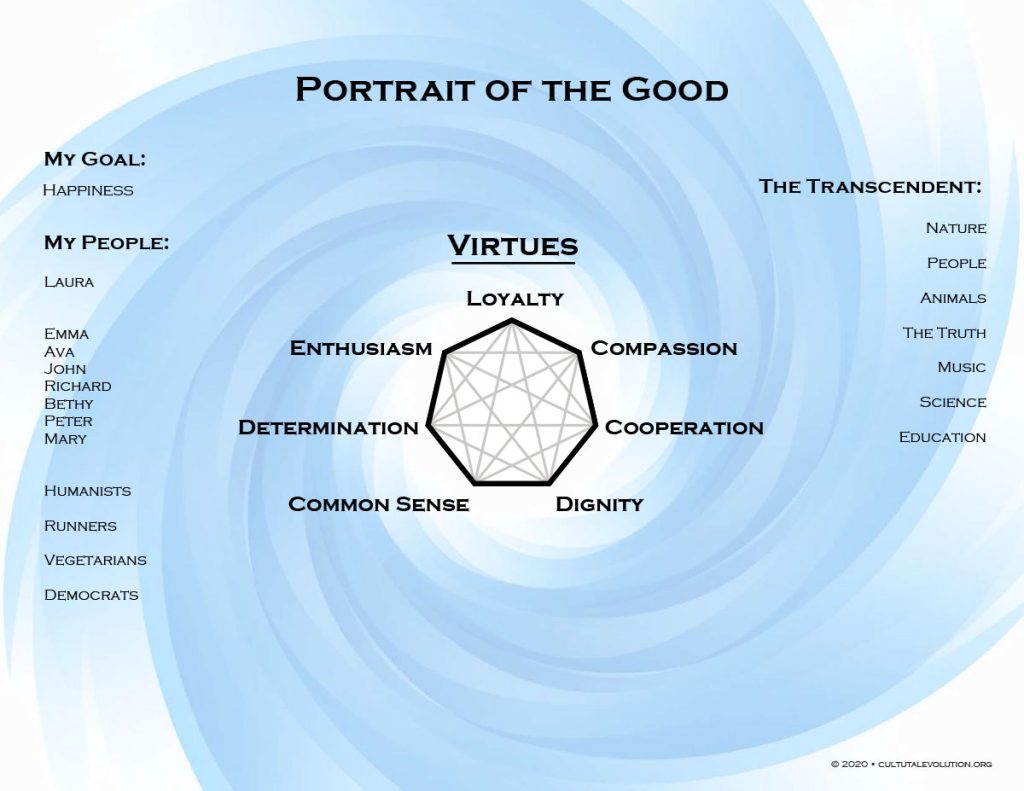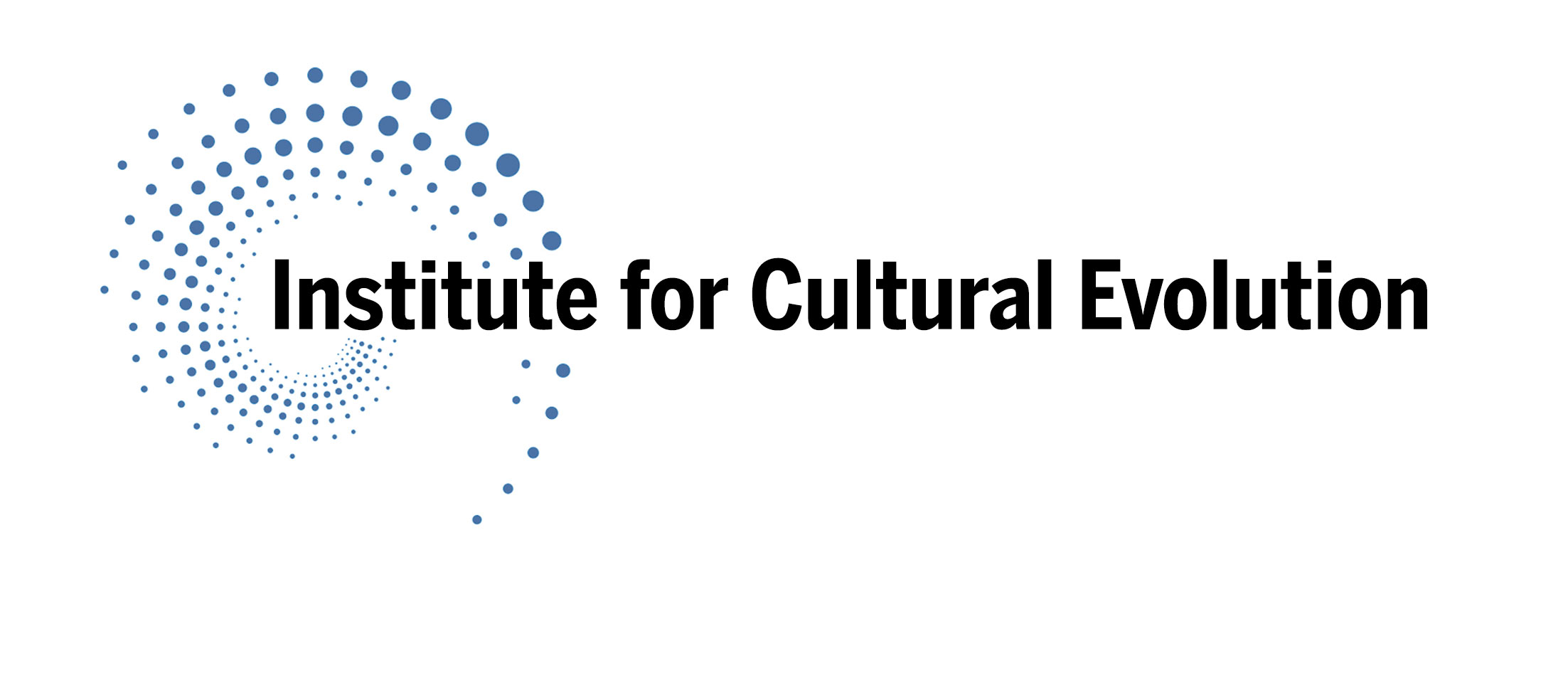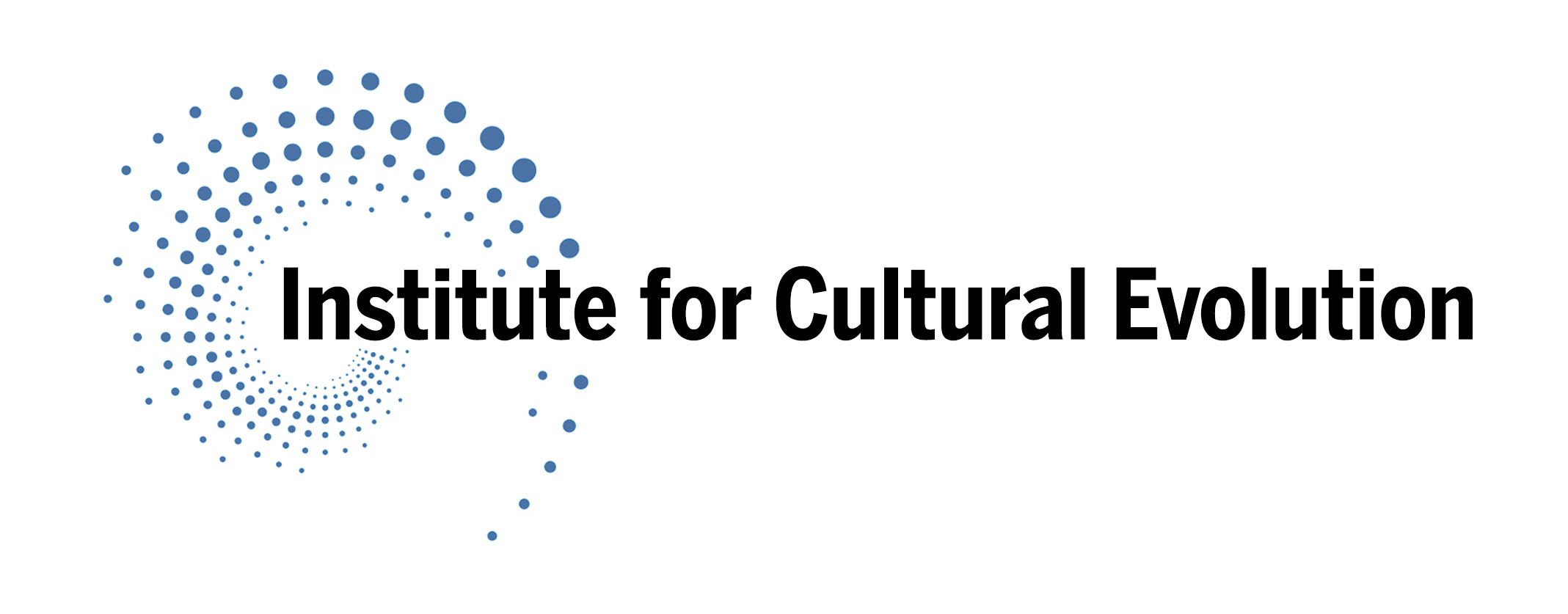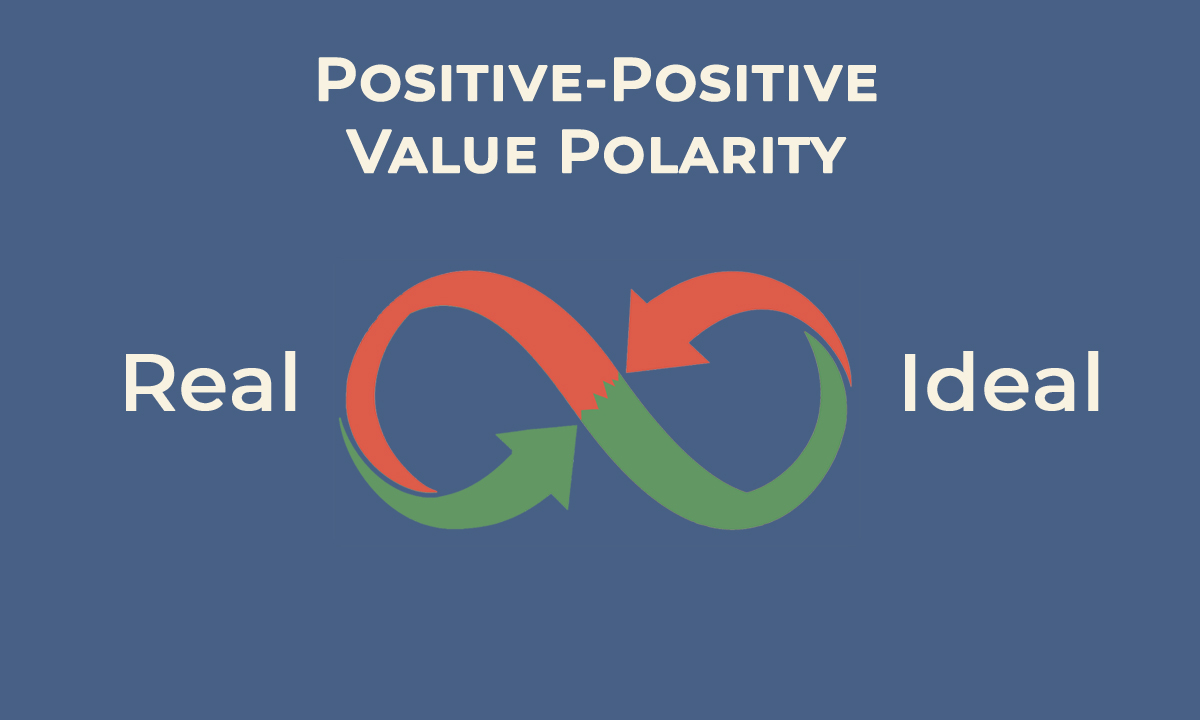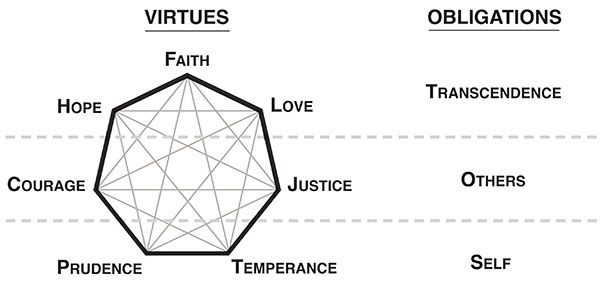Polarity number two is REAL & IDEAL. While this pair may at first seem prosaic or obvious, it is highly useful and applicable to many life situations. Without the moderation and challenge of the other, each of these poles can be problematic. Realism without idealism can lead to a cynical acceptance of a dysfunctional status quo. And conversely, idealism that is unrealistic can result in ineffectual wishful thinking. But when these two poles become mutually co-correcting, they can increase our power to improve things.
Join Our Newsletter
Contact
The Institute for Cultural Evolution is a 501(c)(3) non-profit, tax-exempt organization.
ICE Privacy Policy
Our Privacy Promise to you
Since our inception in 2013, ICE has invited our stakeholders to join our email list to receive updates and announcements on our progress as a think tank. Email addresses are securely held by Send-In-Blue email service, which ensures the ability to quickly and permanently unsubscribe from our email list at any time. Character Development Exercise results and Worldview Questionnaire results are stored on our secure server.
We respect your confidentiality
ICE ensures that your email address, as well as the data you enter on our website, is held in strict confidence. We will only use your information for its intended nonprofit purpose. We do not sell or trade your information to other organizations or individuals.
We protect your information
ICE takes every reasonable measure to insure that your information is not compromised in any way. Our privacy promise extends online to our Internet website. Online information is transmitted via a secure server using encryption technology. If you choose to send us email, we may retain the contents of your email message, our reply and your email address as part of our ongoing customer service efforts. We reserve the right to contact you after you have contacted us and may send future email to you about ICE. You may unsubscribe to discontinue electronic communication from us at any time.
We keep accurate records
Upon request in writing we will remove your personal information from our databases, except where legislation or regulation requires our retention of it (for example, charitable giving history tied to income tax receipts.)
If you have any questions about our website or our Privacy Promise, please contact the ICE office by email at info@culturalevolution.org.
Character Development Exercise
What Does “Transcendence” Mean?
“Transcendence” or “the transcendent” generally refers to the people and things that are ultimately more important than yourself or your perceived self-interest. For example, that which is transcendent for you could include: Your family, humanity, your deepest convictions, the environment, God, Oneness, your country, animals, freedom, adventure, art, science, a better world, or anything you consider authentically “higher.” Your personal ideals of transcendence are grounded in the people and things that you’re dedicated to, and might even lay down your life for, if it became necessary. Your ideals of transcendence therefore help define your life’s higher purposes.
The word transcendence is used in this exercise as an umbrella term that is friendly to both spiritual and secular notions of transcendent higher purposes. In other words, you don’t have to be religious to recognize the significance of transcendent ideals. Our attraction to a greater good that lies beyond ourselves—our ceaseless striving to serve something higher and create something better—is a fundamental part of what makes us human.
The connection between your ideals of transcendence, your virtues, and your basic moral obligations—to self, to others, and to the transcendent—is illustrated by the graphic below. The specific virtues shown in this graphic are the 7 fundamental virtues, but the specific 7 virtues you choose in this exercise may differ from these classical 7.
For more on virtues and their relationship with transcendence, see the book Developmental Politics, by this exercise’s author, Steve McIntosh.
Three specific examples of completed Portraits of the Good
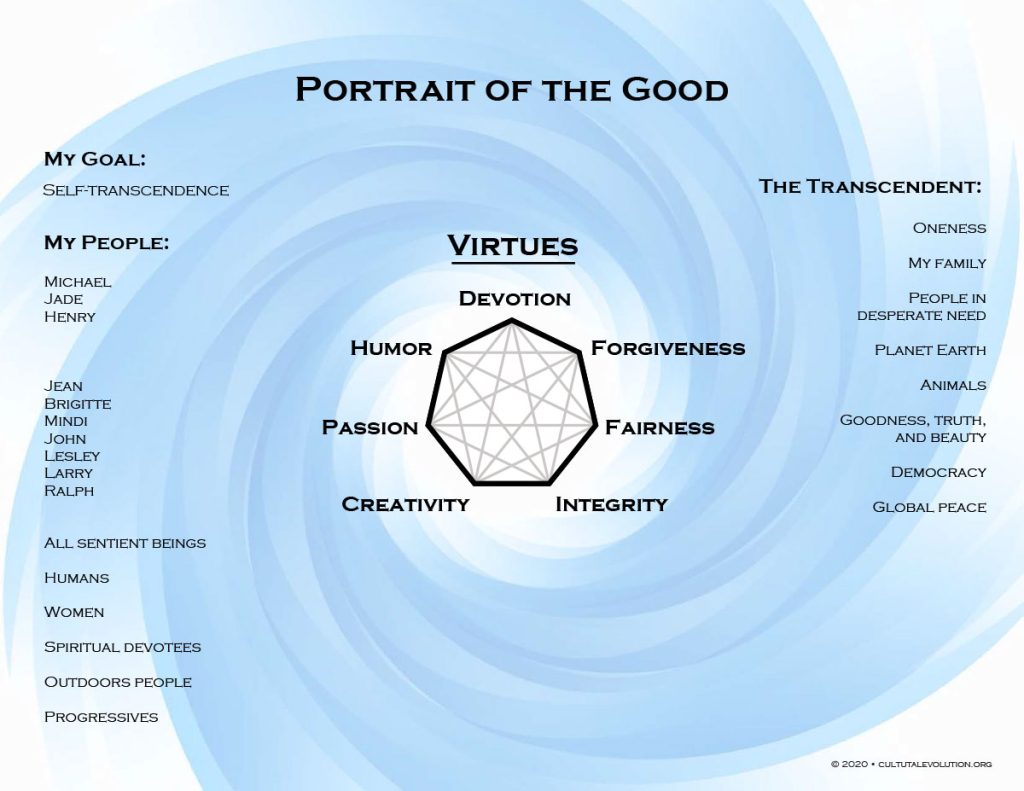
Example 1 of 3
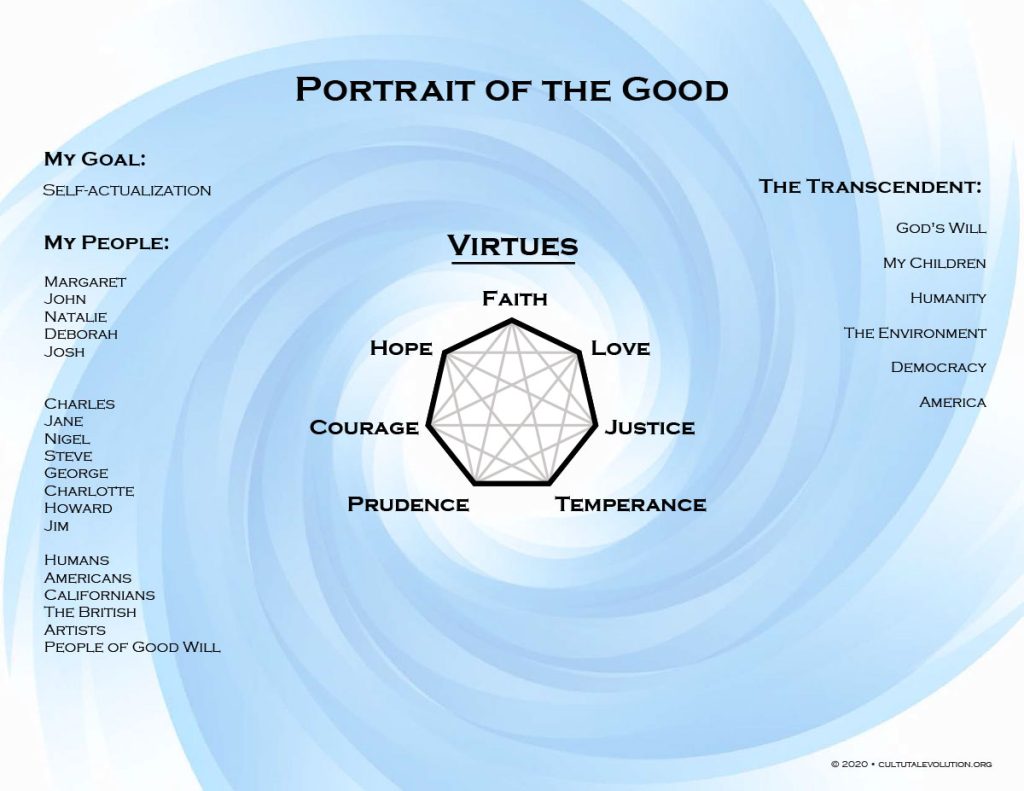
Example 2 of 3
